Films with theme "Films about Jews and Judaism", sorted by revenue

The Boat Is Full (1981)
, 1h41Directed by Markus Imhoof
Origin Suisse
Genres Drama, War, Historical
Themes Films about religion, Political films, Films about Jews and Judaism
Actors Tina Engel, Curt Bois, Mathias Gnädinger
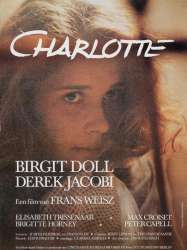
Charlotte (1981)
Directed by Frans Weisz
Genres Drama, War
Themes Films about religion, Political films, Films about Jews and Judaism
Actors Elisabeth Trissenaar, Brigitte Horney, Max Croiset, Peter Capell, Derek Jacobi, Peter Faber
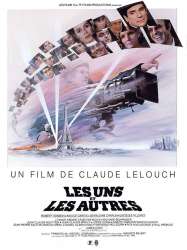
Bolero: Dance of Life (1981)
, 3h4Directed by Claude Lelouch
Origin France
Genres Drama, Musical theatre, Musical
Themes Films about religion, Political films, Films about Jews and Judaism
Actors Robert Hossein, Nicole Garcia, Geraldine Chaplin, Daniel Olbrychski, Fanny Ardant, Jacques Villeret
The film follows four families, with different nationalities (French, German, Russian and American) but with the same passion for music, from the 1930s to the 1980s. The various story lines cross each other time and again in different places and times, with their own theme scores that evolve as time passes.

The Vulture (1981)
, 1h32Directed by Yaky Yosha
Origin Israel
Genres Drama
Themes Films set in Africa, Films about religion, Political films, Films about Jews and Judaism
Actors Hanna Maron, Anat Atzmon, Orly Silbersatz Banai
Boaz, a young officer, returns home from the Yom Kippur War (1973). He left for the war with two friends and returned with one dead and one badly injured. Down and out and lonely, Boaz aimlessly wanders the streets of Tel-Aviv.
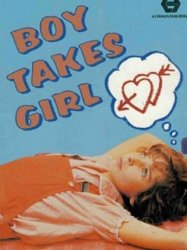
Boy Takes Girl (1982)
, 1h25Directed by Michal Bat-Adam
Origin Israel
Genres Drama
Themes Films about religion, Films about Jews and Judaism
Aya (Einat Helfman) is a shy 10-year-old girl who has grown up in Tel Aviv. When her parents, who are both doctors, travel to Thailand as part of their work, Aya is placed in a boarding school on a kibbutz. As an outsider, she has difficulty adjusting to the insularity and unfamiliar values and practices of kibbutz society. She struggles to cope with the challenges of living with dozens of her peers in a communal children's dormitory where there is no separation according to gender.
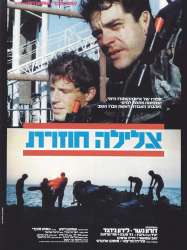
Repeat Dive (1982)
, 1h27Directed by Shimon Dotan
Origin Israel
Themes Films about religion, Films about Jews and Judaism
Actors Mosko Alkalai
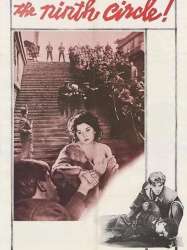
The Ninth Circle (1960)
, 1h47Directed by France Štiglic
Genres Drama, War
Themes Films about religion, Political films, Films about Jews and Judaism
Actors Dušica Žegarac, Beba Loncar, Emil Glad
During World War II in Zagreb, the capital city of Croatia, occupied by the Nazis. Ruth, a Jewish teenage girl of seventeen is good friends with Ivo, a nineteen-year-old catholic Croatian boy, and his family. The Germans are prosecuting Jews more and more, and Ruth's parents get arrested. Ivo's parents persuade him to marry Ruth and lead a fake marriage in order to save her. Ivo is reluctant since he already has a lovely girlfriend, Magda, and because his student friends are teasing him for rushing to marriage at such an early age. Ruth sees that she is causing him great pain and runs away, but Ivo brings her back and falls in love with her. Ruth is eventually brought to a concentration camp named The Ninth Circle. Ivo finds her and tries to make her escape, but the couple dies when they try to cross the electrified fence.
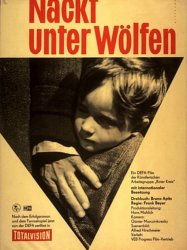
Naked Among Wolves (1963)
, 1h56Directed by Frank Beyer
Genres Drama, War
Themes Politique, Films about religion, Political films, Films about Jews and Judaism
Actors Erwin Geschonneck, Armin Mueller-Stahl, Viktor Avdyushko, Peter Sturm, Zygmunt Malanowicz, Werner Dissel
Buchenwald concentration camp, early 1945. A Polish prisoner named Jankowski, who has been on a death march from Auschwitz, brings a suitcase to the camp. When the inmates in the storage building open it, they discover a three-year-old child. Jankowski tells them he is the son of a couple from the Warsaw Ghetto, both of whom perished. Prisoner Kropinski becomes attached to the boy, and begs Kapo André Höfel to save him. Höfel, who is a member of the camp's secret communist underground, consults with senior member Bochow. He is instructed to send the child on the next transport to Sachsenhausen. Höfel cannot bring himself to do so, and hides him. Jankowski is deported to Sachsenhausen alone.
 , 55minutes
, 55minutesGenres Biography, Documentary
Themes Films about racism, Films about religion, Documentary films about racism, Documentary films about law, Documentary films about war, Documentary films about historical events, Documentaire sur une personnalité, Documentary films about religion, Political films, Films about Jews and Judaism, Documentary films about World War II
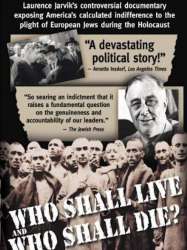 , 1h30
, 1h30Origin USA
Genres Documentary
Themes Films about racism, Films about religion, Documentary films about racism, Documentary films about law, Documentary films about war, Documentary films about historical events, Documentaire sur une personnalité, Documentary films about politics, Documentary films about religion, Political films, Films about Jews and Judaism, Documentary films about World War II

Drifting (1983)
, 1h20Directed by Amos Guttman
Origin Israel
Genres Drama
Themes Films about religion, Films about sexuality, LGBT-related films, Films about Jews and Judaism, LGBT-related films, LGBT-related film
Actors Jonathan Sagall
Robi (Jonathan Sagall) is a young Israeli who lives his grandparents and works at their store. He dreams of finding true love and becoming a movie director, both of which seem increasingly difficult. His film career stalls, until he can get financial backing and his love life seems to be in similar shape. While the urban city has places to cruise for sex, Robi struggles to find an organized gay community and a committed relationship.
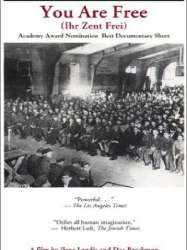
You Are Free (1983)
, 20minutesGenres Documentary
Themes Films about racism, Films about religion, Documentary films about racism, Documentary films about law, Documentary films about war, Documentary films about historical events, Documentaire sur une personnalité, Documentary films about religion, Political films, Films about Jews and Judaism, Documentary films about World War II

Atalia (1984)
, 1h30Origin Israel
Genres Drama
Themes Films about religion, Films about Jews and Judaism
Actors Michal Bat-Adam
Atalia (Michal Bat-Adam) is a 40-year-old widow who lost her husband in the Six-Day War and lives on a kibbutz with her adolescent daughter (Gail Ben-Ner). Lonely and feeling outcast, she enters into a forbidden affair with her daughter's classmate, Matti (Yiptach Katzur), an idealistic 19-year-old who had been rejected by the army. Atalia is independent-minded and non-conformist, so when her affair becomes known, the kibbutz leaders have the excuse they need to ostracize her. The slow degeneration of the once-idealistic kibbutz into a puritanical society, the strait-jacket of its conservative view of masculinity, and the conformity of her daughter all provide a backdrop to Atalia's problems.

Sallah (1964)
, 1h50Directed by Ephraim Kishon
Origin Israel
Genres Drama, Comedy
Themes Films about religion, Films about Jews and Judaism
Actors Chaim Topol, Arik Einstein, Gila Almagor
The film begins with Sallah Shabati, a Mizrahi Jewish immigrant, arriving with his family in Israel. Upon arrival he is brought to live in a ma'abara, or transit camp. He is given a broken down, one room shack in which to live with his family and spends the rest of the movie attempting to make enough money to purchase adequate housing. His money-making schemes are often comical and frequently satirize the political and social stereotypes in Israel of the time.
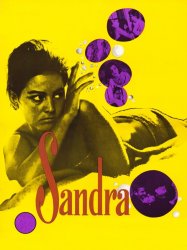
Sandra (1965)
, 1h45Directed by Luchino Visconti
Origin Italie
Genres Drama, War
Themes Films about families, Films about religion, Films about sexuality, Films about Jews and Judaism
Actors Michael Craig, Claudia Cardinale, Jean Sorel, Renzo Ricci, Fred Williams, Marie Bell
Visconti's retelling of the Electra story starts with Sandra/Electra (Claudia Cardinale) returning to her ancestral home in Italy - and reviving an intimate involvement with her brother (Sorel) which troubles her naive husband (Michael Craig) - on the eve of an official ceremony commemorating the death of her Jewish father in a Nazi concentration camp. As ever with Visconti, he is ambivalently drawn to the decadent society he is ostensibly criticising; and Armando Nannuzzi's camera lovingly caresses the creaking old mansion, set in a landscape of crumbling ruins, where the incestuous siblings determine to wreak revenge on the mother (Bell) and stepfather (Ricci) who supposedly denounced their father.
 Connection
Connection